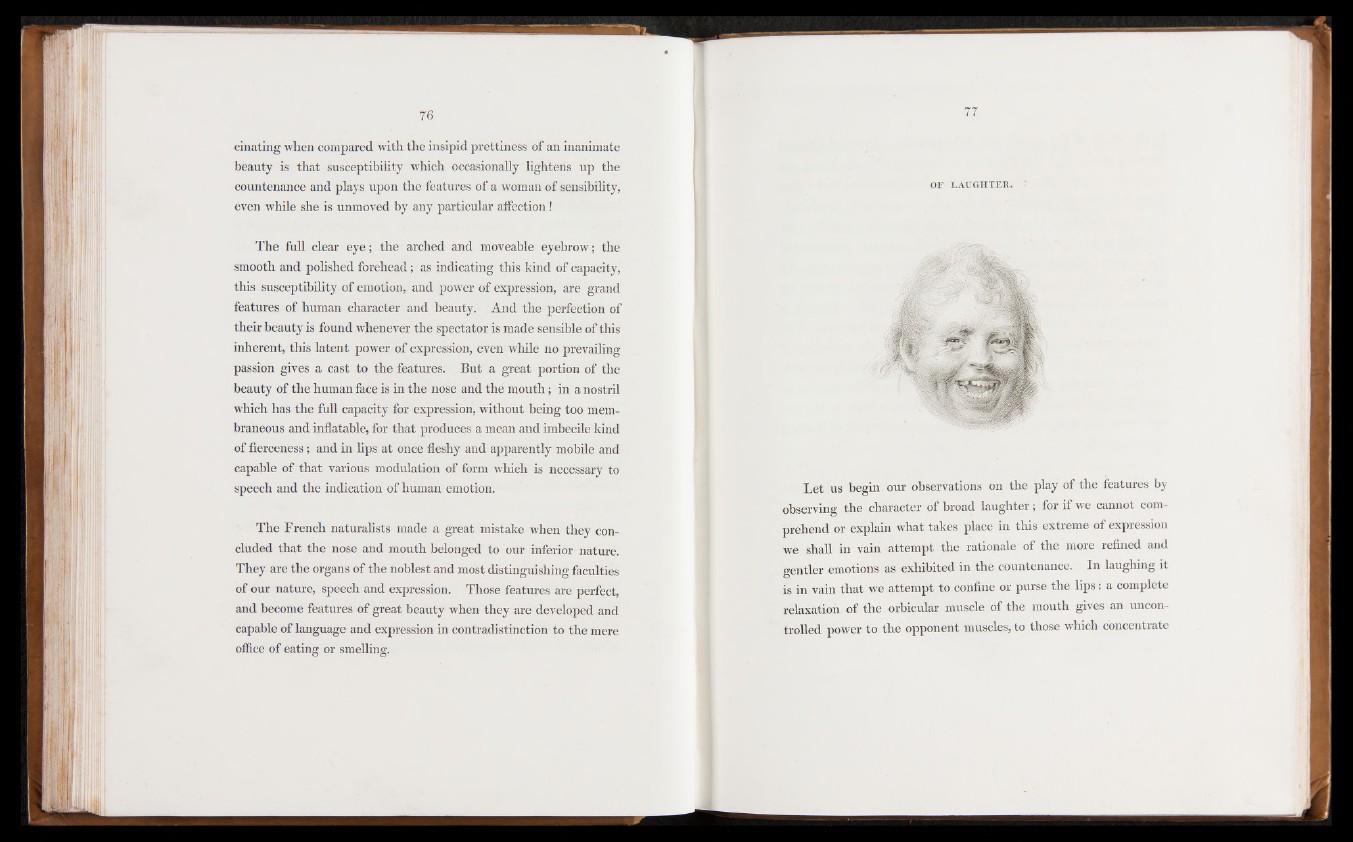
cinating when compared with the insipid prettiness of an inanimate
beauty is that susceptibility which occasionally lightens up the
countenance and plays upon the features of a woman of sensibility,
even while she is unmoved by any particular affection !
The full clear eye; the arched and moveable eyebrow; the
smooth and polished forehead; as indicating this kind of capacity,
this susceptibility of emotion, and power of expression, are grand
features of human character and beauty. And the perfection of
their beauty is found whenever the spectator is made sensible of this
inherent, this latent power of expression, even while no prevailing
passion gives a cast to the features. But a great portion of the
beauty of the human face is in the nose and the mouth; in a nostril
which has the full capacity for expression, without being too membraneous
and inflatable, for that produces a mean and imbecile kind
of fierceness; and in Ups at once fleshy and apparently mobile and
capable of that various modulation of form which is necessary to
speech and the indication of human emotion.
The French naturaUsts made a great mistake when they concluded
that the nose and mouth belonged to our inferior nature.
They are the organs of the noblest and most distinguishing faculties
of our nature, speech and expression. Those features are perfect,
and become features of great beauty when they are developed and
capable of language and expression in contradistinction to the mere
office of eating or smelling.
OF LAUGHTER.
Let us begin our observations on the play of the features by
observing the character of broad laughter; for if we cannot comprehend
or explain what takes place in this extreme of expression
we shall in vain attempt the rationale of the more refined and
gentler emotions as exhibited in the countenance. In laughing it
is in vain that we attempt to confine or purse the lips: a complete
relaxation of the orbicular muscle of the mouth gives an uncontrolled
power to the opponent muscles, to those which concentrate